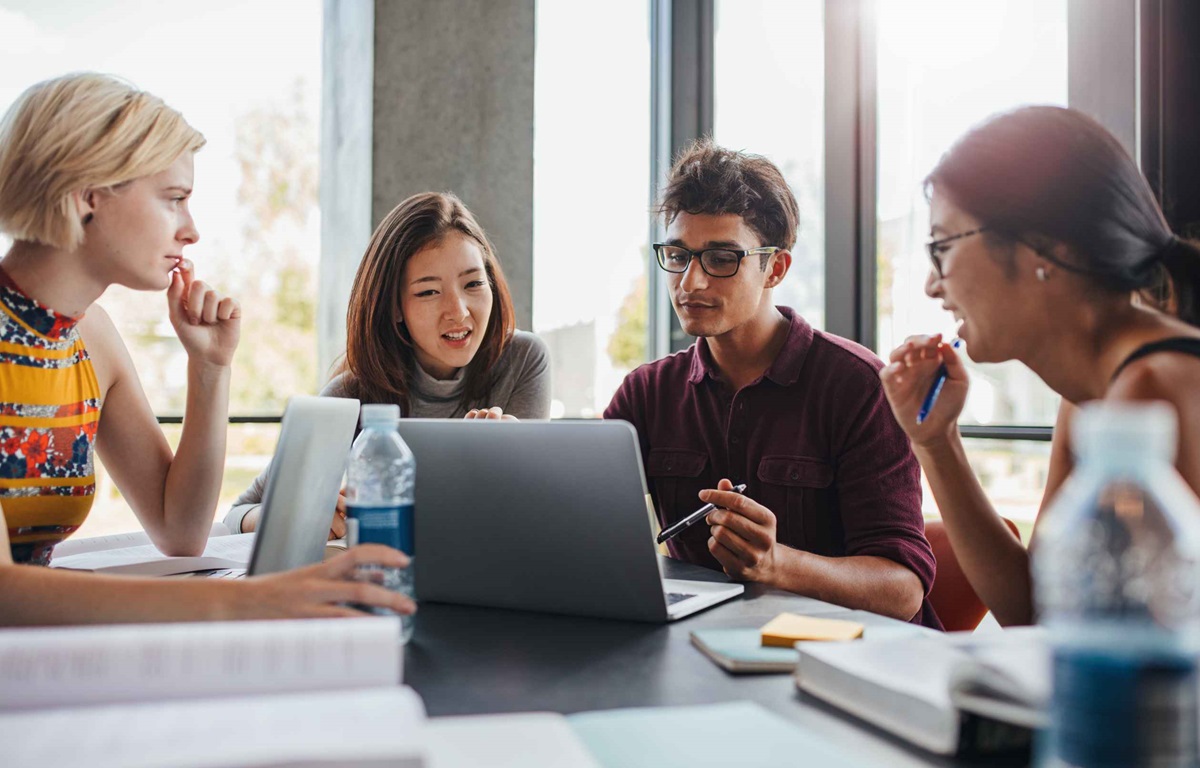- Home
- Overseas students
- Your student visa checklist
Student visa checklist: Guide for international students
Studying in Australia is an exciting adventure, but getting your student visa right is the key to a smooth start. The Student visa 500 lets international students live, study, and work part-time in Australia. This checklist guides you through the essential steps and documents for your student visa application, so that you’re starting your new journey with confidence.

Step-by-step checklist for international students travelling to Australia
Getting ready for your Australian student visa starts well before you submit your application.
These simple steps will help set you up for a smooth application process and help you meet the Department of Home Affairs’ requirements.
Before you apply
✔ Plan well in advance
Start your Student 500 visa application as early as you can - the sooner, the better. Some applications can take seven to nine months or more to be processed. Give yourself plenty of time to help reduce stress and have the best chance of being ready to travel when planned.
✔ Make sure you meet the basic requirements for visa eligibility
You must enroll in full-time study, meet the Genuine Student (GS) requirement, and demonstrate some English language proficiency requirements.
✔ Plan Your Finances
You’ll need to show that you can cover tuition (the average cost is $20,000), living costs, and travel expenses. Start gathering proof like bank statements or sponsorship letters early - you’ll need to show 12 months’ worth.
✔ Plan health insurance
All students in Australia must have adequate Overseas Student Health Cover (OSHC) for the entire duration of their stay, unless exempt. You need to arrange your health insurance before applying for your visa. This way, you can include the details with your application.
CBHS International Health has won the Canstar 2025 Outstanding Value - Overseas Student Health Cover award.1

Gather your documents
See our complete list of documents that all applicants must submit.
There may be additional document requirements by your home country, or based on your visa type.
The application
Applications should go through an ImmiAccount online. Follow these steps to make the process simple and smooth.
✔ Create an ImmiAccount
Set up a free account on the Department of Home Affairs’ website. It’s your hub for submitting, paying for, and tracking your application.
✔ Pay the fee
Make the payment for your visa application. You can do so with a credit card through ImmiAccount - be aware that it’s non-refundable.
If needed, attend your booked health exam and bring your Health Examination List letter. This includes your Health Assessment Processing (HAP) ID so the results can be linked to your application. Most need chest X-rays or blood tests - your results will sync to your application within days.
Save PDFs of everything, like your application, receipts, and uploads. If the Department of Home Affairs asks for more info, you’ll need quick access.

Consider your health insurance requirements
Overseas Student Health Cover (OSHC) is health insurance designed for overseas students studying in Australia. OSHC helps cover your medical costs if you get sick or have an accident.
Australians' have trusted the CBHS Group's health insurance for over 70 years, and our low-cost overseas student insurance is fully compliant with Subclass 500 student visa requirements.
If you need support, you'll have 24/7 access to a medical, interpreter and personal assistance helpline - any time, any day and in any language.*
Waiting for confirmation
✔ Be prepared to respond to further requests
The Department of Home Affairs might request more documents or information from you while they’re processing your application. If you have an agent, they’ll handle these communications. If you don’t, be ready to respond quickly to minimise delays.
Student visa documents checklist
Documents required of all student visa applicants:
✔ Identity documents
You’ll generally need to provide the following:
- Passport – this is the primary identity document
- National identity card – if your country issues one
- Birth certificate – may also be required to confirm identity and family relationships
Note: Not all applicants will need all three documents. Requirements may vary depending on your country of passport and visa processing circumstances.
✔ Certificate of Enrolment (CoE) for intended courses in Australia
You must enter the CoE number(s) in the application form for the application to be valid.
✔ Overseas Student Health Cover (OSHC)
You’ll need to provide proof that you have adequate health insurance, such as a valid OSHC policy certificate which shows your name, cover period and policy number.
✔ A letter to help you meet the “Genuine Student” requirement
You’ll need to write a letter explaining your reasons for wanting to study your chosen course in Australia. You’ll also need to describe your current circumstances, which might include information about your family, community, employment, and economic situation.
✔ Evidence of your financial situation
You’ll have to prove you have enough money to pay for tuition, living costs, and travel. Provide bank statements, loan letters, fixed deposits, or scholarship awards.
✔ English proficiency results
Provide test scores meeting your course’s requirements. Exemptions apply for English-speaking countries.
✔ Health examination results
You will need to meet Australia’s health requirement to get a Student visa. You should complete your health examination, if it's needed, before you lodge your visa application.
✔ Be aware of additional documents you might need to submit
If you’re using a migration agent, you’ll need to submit two additional forms - Form 956 and Form 956A, so the Government knows which agent is representing you.
If you’re under 18, you’ll need to submit a parental consent form.
There may be further forms, or steps (like biometrics), depending on your home country.


Student dependant visa in Australia
For Australia’s subclass 500 Student visa, you can bring family members like your partner or unmarried children under 18 as dependants. You'll need to include proof like marriage or birth certificates in your visa application. Parents, siblings, or fiancés don’t qualify as dependants, and would need separate visas. Most visas include visa condition 8501, which requires you to maintain adequate health insurance during your stay.
Make sure you purchase the right OSHC policy for your circumstances. For example if you're coming to Australia to study with your partner, you must buy one OSHC policy for couples.
This article provides an overview of the student visa application process. For full details, including a step-by-step guide, visit the Department of Home Affairs website.
Transportation
Accommodation
Banking
1The Canstar 2025 Outstanding Value Award for Overseas Student Health Cover. For more information on the awards visit Canstar.com.au *CBHS International Health may refer you to third party providers when you use the medical, interpreter and personal assistance helpline. If you decide to engage a provider, it will be on the basis that CBHS International Health will not be responsible, and you will not hold CBHS International Health responsible, for any liability that may arise from that engagement.